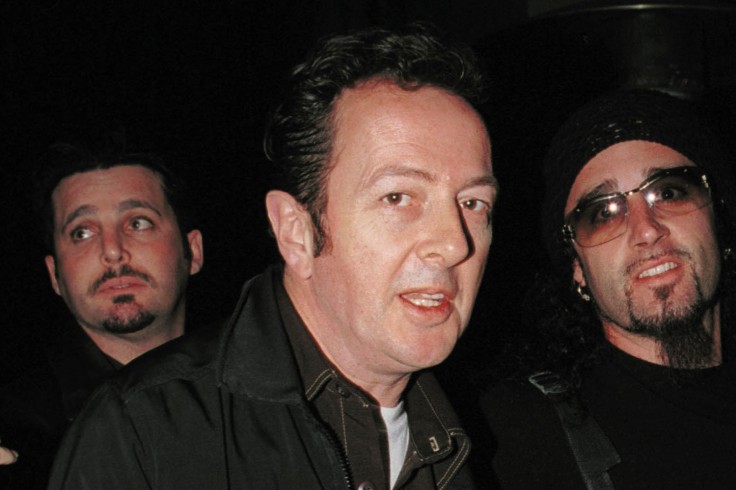
Joe Strummer's cause of death took over the spotlight again as fans marked "The Clash" vocalist's death anniversary.
This year, several musicians remember Strummer by busking in front of his mural in New York City. The event, called the "Gates of the West" holiday benefit, started at 6:00 p.m. and will last until 8:00 p.m. ET on December 22. According to Consequence of Sound, the event will be moved to Niagara's stage if it rains or snows amid the event.
Among the performers include Jesse Malin, Eugene Hutz, and "The So So" Glos members. Fans can watch them live for free, but the organizers encourage them to make donations to "Music & Memory" charity.
As fans and colleagues celebrate his life, Joe Strummer's cause of death has been the talk of everyone again.
How Did Joe Strummer Die?
On Dec. 22, 2002, multiple news outlets confirmed that Strummer died at his Somerset, England, home. At that time, the 50-year-old musician reportedly suffered an apparent heart attack.
On Strummer's website, an announcement revealed that the vocalist died peacefully at his home. He was later cremated at the West London Crematorium, Kensal Green Cemetery.
However, MTV released more details after a few days. It quoted coroner Michael Rose's findings, saying that the punk icon did not die due to drug-related issues. Instead, Strummer passed away after a sudden cardiac arrest.
He collapsed at his home after walking his dog. When his wife, Lucinda, found him, she tried to revive the singer but failed to regain back his pulse.
Before his death, it was announced that his band, "The Clash", would be inducted into the Rock & Roll Hall of Fame. He was also working on another album at the time of his death; it was then released posthumously in October 2022.
Despite his popularity in the music industry, he endured heartbreaks in his personal life. When he became estranged from his family, he was still in pain after his brother died of suicide in 1970. He and the family members had to identify his body after being found three days after he passed away.
"[He] was a year older than me. Funnily enough, you know, he was a Nazi," he once said. "He was a member of the National Front. He was into the occult and he used to have these deaths-heads and cross-bones all over everything. He didn't like to talk to anybody, and I think suicide was the only way out for him. What else could he have done?"
Things had to move forward, with music helping him to take a leap after the losses he suffered from.
© 2025 MusicTimes.com All rights reserved. Do not reproduce without permission.




